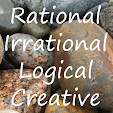I thought I'd start posting book reviews of some of the books I read. This weekend I finished reading The Open Spaces of Democracy by Terry Tempest Williams. When we went to the Western Literature Conference in Boise, she was the honored author at the conference. We heard her read some passages from older works (including this one) and she read a chapter from her newest manuscript. Hearing her read from her work prior to reading this book added to the experience of reading it. I could imagine her voice saying the words as I was reading them. Considering that the middle section of the book is almost poetic in form, it seemed fitting to imagine it read in her voice.
The book consists of three somewhat short essays. The first essay focuses on her experience of giving the graduation address at the University of Utah on May 2, 2003. The entire text of the speech is reprinted in the essay. Her speech was political in nature and had a definite liberal angle. The speech was meet with both boos and cheers. Afterward, she had a discussion with a Utah politician (Utah is a conservative state) which later continued through letters between the two. Some of which were also reprinted in the text.
The second essay is something like a journal of her visit to the Arctic and the much disputed 1002 region of the Wildlife Preserve.
The last essay deals with political activism. She discusses her personal experience with land development issues in her own community and her experience observing demonstrations in Italy against U.S. intentions prior to the invasion of Iraq.
The first and last essays were more linear and politically focused. The middle essay was more stream of consciousness and focused on nature, both the human being's place in nature and preservation of open spaces.
The author takes a very environmentally focused view of life and democracy. She equates democracy with the equality and cooperation she sees in the natural world. She also looks to nature as a guide for personal spiritual and even political growth.
Although this book would not be especially useful for scholarly work in political science, it does provide some first hand accounts that could be useful. It is, however, mostly a work of literature, and as such, it is stimulating and intriguing.
Monday, January 08, 2007
Subscribe to:
Post Comments (Atom)

No comments:
Post a Comment